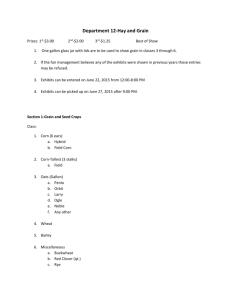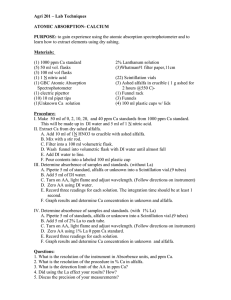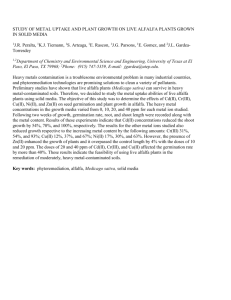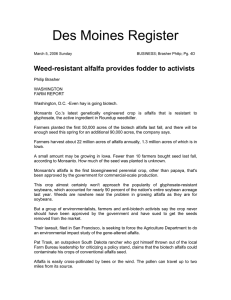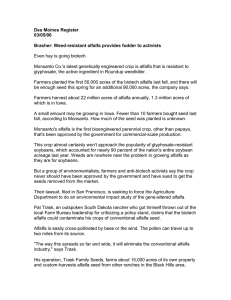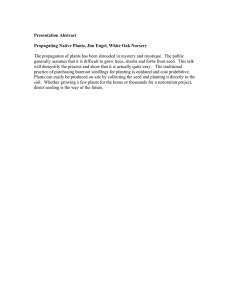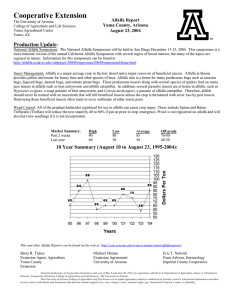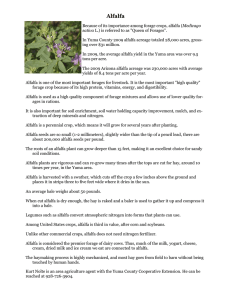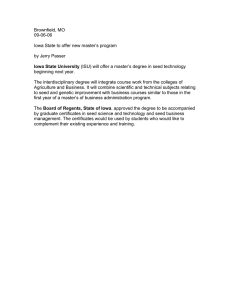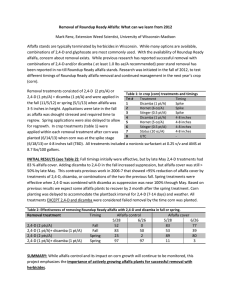Iowa Farmer Today 03-31-07 Roundup Ready alfalfa planting deadline was March 30
advertisement
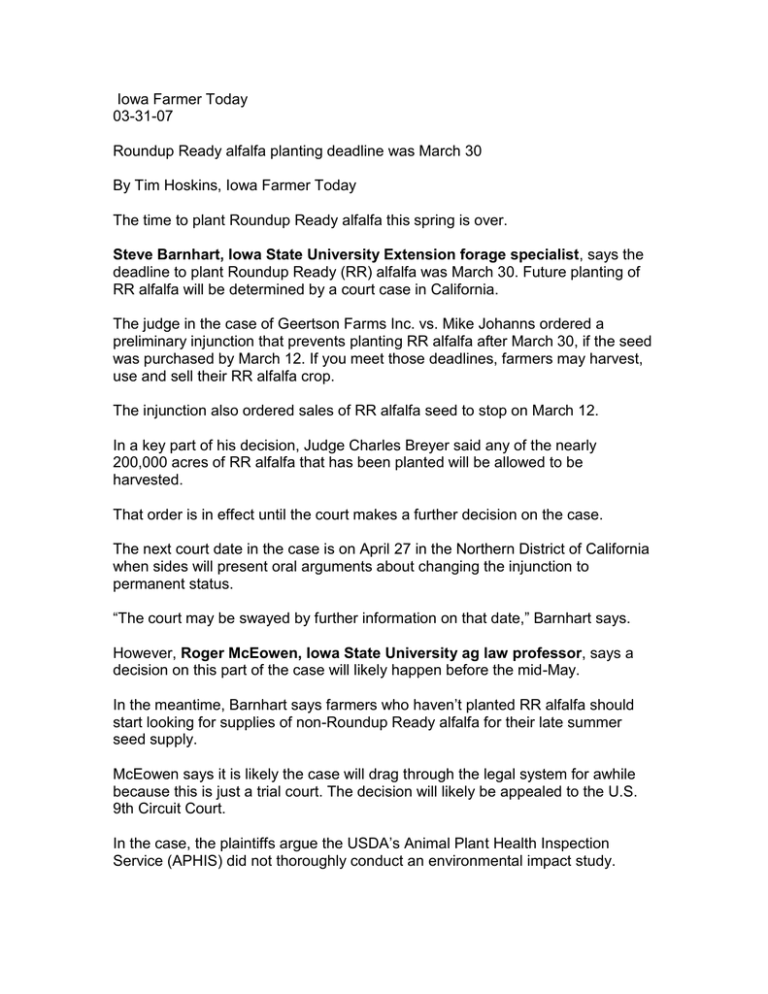
Iowa Farmer Today 03-31-07 Roundup Ready alfalfa planting deadline was March 30 By Tim Hoskins, Iowa Farmer Today The time to plant Roundup Ready alfalfa this spring is over. Steve Barnhart, Iowa State University Extension forage specialist, says the deadline to plant Roundup Ready (RR) alfalfa was March 30. Future planting of RR alfalfa will be determined by a court case in California. The judge in the case of Geertson Farms Inc. vs. Mike Johanns ordered a preliminary injunction that prevents planting RR alfalfa after March 30, if the seed was purchased by March 12. If you meet those deadlines, farmers may harvest, use and sell their RR alfalfa crop. The injunction also ordered sales of RR alfalfa seed to stop on March 12. In a key part of his decision, Judge Charles Breyer said any of the nearly 200,000 acres of RR alfalfa that has been planted will be allowed to be harvested. That order is in effect until the court makes a further decision on the case. The next court date in the case is on April 27 in the Northern District of California when sides will present oral arguments about changing the injunction to permanent status. “The court may be swayed by further information on that date,” Barnhart says. However, Roger McEowen, Iowa State University ag law professor, says a decision on this part of the case will likely happen before the mid-May. In the meantime, Barnhart says farmers who haven’t planted RR alfalfa should start looking for supplies of non-Roundup Ready alfalfa for their late summer seed supply. McEowen says it is likely the case will drag through the legal system for awhile because this is just a trial court. The decision will likely be appealed to the U.S. 9th Circuit Court. In the case, the plaintiffs argue the USDA’s Animal Plant Health Inspection Service (APHIS) did not thoroughly conduct an environmental impact study. Some of the things they argue are missing in the study was development of resistant weeds, pollen drifting to non-genetically modified organisms and damage to the seed crop. “They allege that APHIS didn’t look seriously at the economic impacts,” says Barnhart. He says it might a take awhile if APHIS is ordered to complete the needed studies. McEowen says a similar case involves RR bentgrass in the District of Columbia. Both cases could be a legal precedent and reach beyond planting alfalfa seed. He says this ruling would likely slow approvals for new GMO crops. “The courts said, ‘USDA, you are going too fast, you need to follow the laws,’ ” he explains. However, the rulings might have a limited effect on previously approved GMOs, such as RR soybeans and corn. McEowen says Roundup Ready soybeans and corn are farther down the road.


